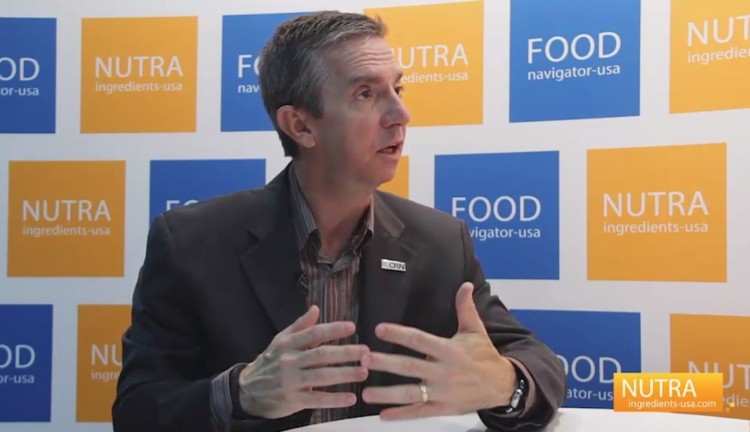Steve Mister’s 10 year anniversary as president and CEO of the CRN
GMPs, AERs, and the NY AG’s action: CRN’s Mister on the big issues of the last decade

Mister joined CRN in 2005, and under his watch the association has grown from about 65-70 voting and associate members ten years ago to over 150 today.
“The growth has changed the dynamics of the organization – we now have a much larger board – but I still see the same commitment from the companies even though the size of the association has grown,” he told NutraIngredients-USA.
“The budget has also increased. We posted $6 million in annual revenue last year, and that gives us the ability to put resources against initiatives.”
Game changer
One such initiative is responding the NY AG’s probe into herbal supplements, which Mister describes as, “the most serious thing to happen to the industry in the last ten years.
“I think that is a game changer.
“We’ve had our share of negative studies over 10 years, we’ve had critical books be published, but this particular issue really has potential to shape the industry,” he said.
“The NY AG went after the mainstream, tried and tested products like garlic. There is no validity to the results; there are internal validity problems with the testing. Even if you assume DNA was appropriate, which it isn’t for botanical extracts, but even if you assume it is, then the results are still internally invalid. The data is not reproducible in itself.
“The whole investigation is based on a house of cards, but it’s attracted the attention of our critics and of the media.”
GMPs and AERs
The AG’s probe has focused attention on GMPs and AERs, and these are the two most significant positive developments during the last 10 years, said Mister.
“The AER law (2006) was the first time that there was a substantial addition to DSHEA and it was driven by industry,” he told us. “We came to understand that the post-market surveillance was lacking. That was significant because it said we were ready to be regulated in ways that DSHEA did not envision.”
Current good manufacturing practices, (cGMPs), first issued in 2007 and fully implemented in 2011, “will continue to be the most influential piece of the industry,” according to Mister.
“On both issues I think that there is more the industry can do, but compliance among CRN members is extremely good. I take that as a point of pride. CRN members want to be role models for the industry.”
CRN
The organization is also a role model for staff longevity: In addition to Mister’s decade with the association, Judy Blatman (Sr VP, Communications) and Mike Greene (VP, Government Relations) have been with CRN for 14 years; Dr Duffy MacKay (Sr VP, Scientific & Regulatory Affairs) for almost 7 years – and that continuity puts CRN in a strong position, said Mister. “Many of the issues come back again, so our staff has a lot of understanding and perspective.”
Prior to CRN, Mister was with CHPA for 12 years. While he was familiar with a lot of the issues, he admits that taking over at CRN was a very steep learning curve.
“I was not only thinking from a regulatory or government relations perspective, but I had to think about what something meant for business, what it meant for consumers, and what the media response would be.”
The media has become more negative over the last decade, he said, although he does not subscribe to a lot of conspiracy theories. The shift in media coverage is due to two reasons:
1. Dietary supplements are now a more mature industry, and at about $35 billion are a big target.
2. The products fit into the media’s formula for covering news: ‘Here are some things that should be good for you but may not be’.
“We’ve been talking about a tale of two industries for a couple of years, because we haven’t been able to clean up the unscrupulous actors. We haven’t been able to get a handle on that problem,” he said.
So how does the industry deal with the outliers? “Isolate them,” said Mister. “Retailers shouldn’t buy from companies with that track record. And manufacturers should shun ingredient suppliers that have been found to be spiking their ingredients.”
The future
When asked to get out his crystal ball, and what the regulatory landscape looks like over the next five to ten years, Mister sees change, albeit gradual. “I think in the years after DSHEA people looked at it as either keep DSHEA exactly as is or go the drug pre-approval route,” he said. “There are ways to accept incremental changes without moving lock, stock and barrel to pre-market approval. There are other alternatives that are more gradual, more gentle.
“The challenge to industry is to have universal support without fear of critics high jacking the discussions and pushing pre-market approval, which industry doesn’t want and would be bad for consumers.”









